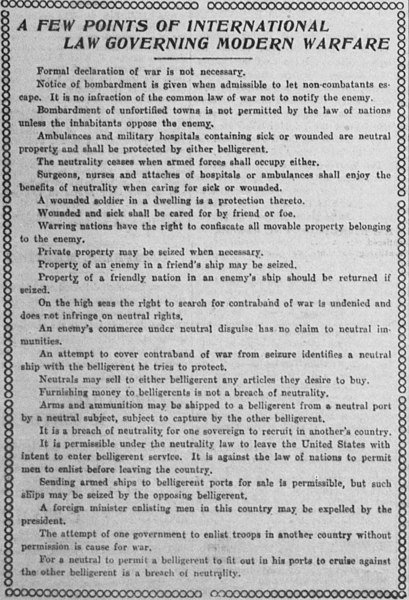The law of war is the component of international law that regulates the conditions for initiating war and the conduct of hostilities. Laws of war define sovereignty and nationhood, states and territories, occupation, and other critical terms of law.
The First Geneva Convention governing the sick and wounded members of armed forces was signed in 1864.
The signing of the First Geneva Convention by some of the major European powers in 1864.
An 1904 article outlining the basic principles of the law of war, as published in the Tacoma Times.
War is an intense armed conflict between states, governments, societies, or paramilitary groups such as mercenaries, insurgents, and militias. It is generally characterized by extreme violence, destruction, and mortality, using regular or irregular military forces. Warfare refers to the common activities and characteristics of types of war, or of wars in general. Total war is warfare that is not restricted to purely legitimate military targets, and can result in massive civilian or other non-combatant suffering and casualties.
Mural of War (1896), by Gari Melchers
The Egyptian siege of Dapur in the 13th century BCE, from Ramesseum, Thebes.
Japanese samurai attacking a Mongol ship, 13th century
Finnish soldiers during the Winter War.







